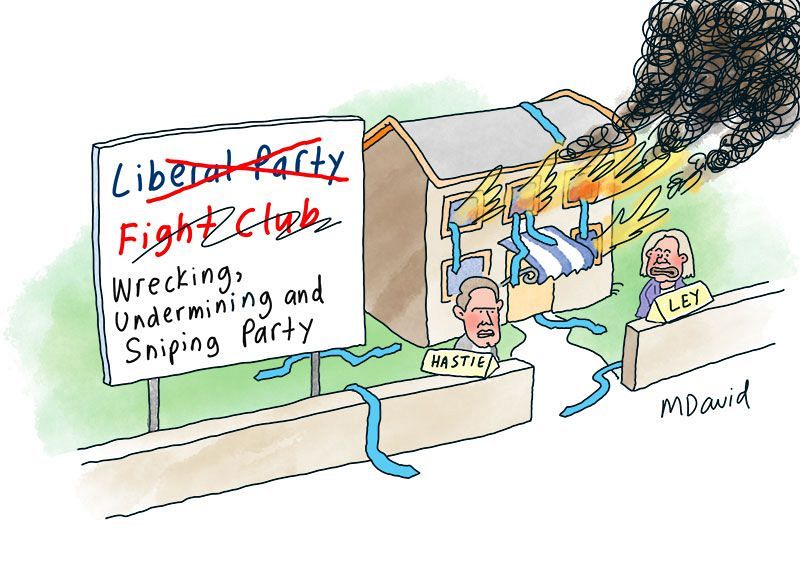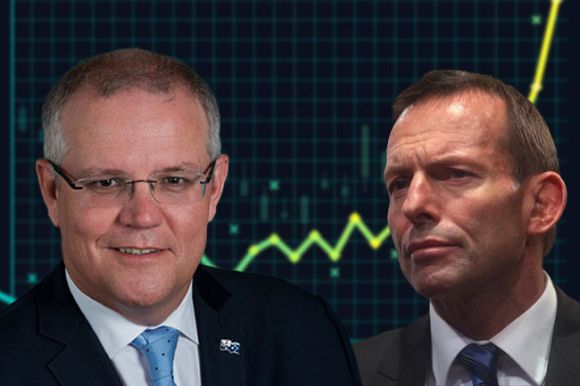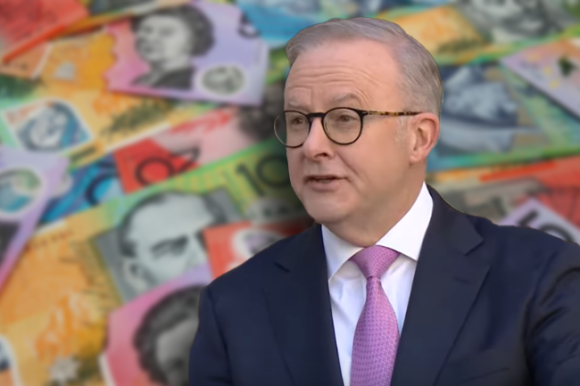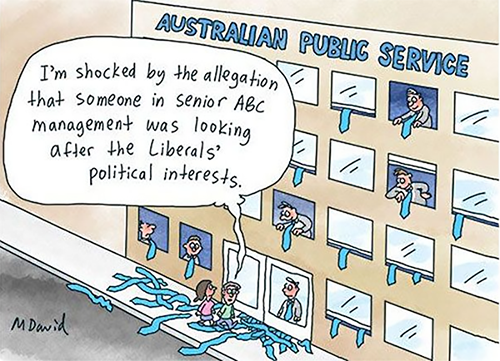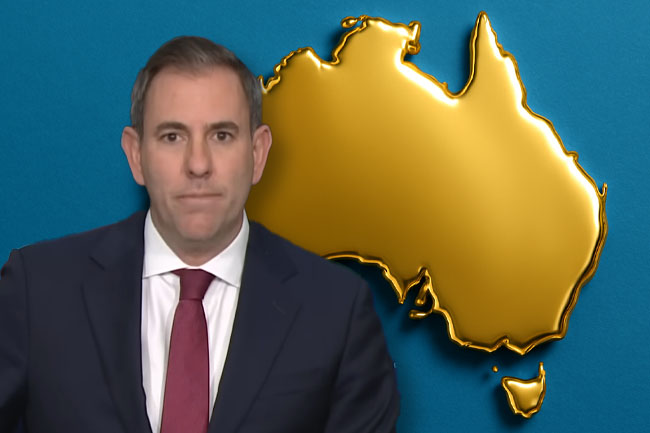Prices, jobs, growth and debt all confirm the Coalition parties have run out of puff, as Alan Austin reports.
WHEN THE Morrison Coalition Government was formulating its Federal Budget in October 2020, net debt had climbed to $602 billion and was still rising. Ten months later, it hit $626.2 billion.
In that 2020 Budget, net debt under the Coalition’s settings was forecast to reach $812.1 billion in 2021-22, then $966.2 billion by 2023-24, which would have been disastrous.
Fortunately, voters in their wisdom tossed out the incompetent Coalition at the 2022 Election, enabling Labor to change virtually all economic settings and reverse most of the nose-diving trajectories.
Net debt at the end of 2023-24, after two Labor budgets, was reduced to just $491.5 billion. See the difference? A cool $474.7 billion — nearly half a trillion.
The latest number, for September, was $552.0 billion.
Time to disappear forever
Similar contrasting outcomes on other key variables reveal the stark disparities in vision, strategy and competence between the major political groupings.
They strongly suggest time is up for the Coalition parties — the Liberals and the Nationals. They are no longer the movements of Robert Menzies, John Gorton, John McEwen and Doug Anthony. Or even of Malcolm Fraser, Peter Costello, Tim Fischer and Warren Truss. They should now follow the Protectionist Party, the Commonwealth Liberals, the Nationalists and United Australia, all of which ran federal governments in the past but eventually ran out of steam.
The current disarray within the conservative parties over climate policy, mineral extraction and leadership confirms that time is up. But it is the economy, on which they long claimed superiority, where they have lost all credibility and authority.
Economic competence across the board
It’s fair to focus on debt to expose Coalition hollowness, as they chose this as their attack weapon in their tawdry election campaigns against the Rudd and Gillard Governments during the Global Financial Crisis. Labor’s net debt peaked at 10.4% of gross domestic product (GDP) in 2013, the third-lowest in the OECD. Later, in 2021, under the Coalition, it hit 28.4%.
We can, of course, look at all the other critical outcomes and reach the same conclusions: that the Labor Party clearly manages the economy vastly better.
The International Monetary Fund (IMF) did this last Thursday with its mission’s final report on Australia’s economy for 2025.
In a highly positive assessment of Prime Minister Anthony Albanese’s administration, the IMF found that:
‘Australia is managing a soft landing amid global uncertainty: inflation has declined significantly, the labour market is still strong, and private demand is recovering.’
Specifically on debt, the IMF reported that:
‘...gradual fiscal consolidation is expected to narrow state and commonwealth deficits, supported by spending reforms and a normalisation of infrastructure spending, keeping public debt at a low level.’
Economic growth still looking good
In a somewhat surprising release last Thursday, the Australian Bureau of Statistics (ABS) found that economic growth has been positive in all eight states and territories through financial years 2023-24 and 2024-25.
While it’s not unusual historically for all states to increase gross state products simultaneously, this is the first time in a decade we have seen this in consecutive years.
That’s because these are unusually tough times globally for GDP growth. As IA has reported before, Australia is the world’s only economy with triple-A credit ratings, inflation within the optimum band and continual GDP growth for the last three years.
The IMF affirmed this also:
‘The economy is gaining momentum, with growth forecast at 1.8 per cent in 2025 and 2.1 per cent in 2026.’
Employment still buoyant
Australia’s jobless rate corrected in the right direction in October to 4.34%, down from 4.45% in September which, while still low in comparative terms, was the highest for 46 months.
Australia has returned to the top nine OECD member economies by low jobless rates, having now snuck ahead of the UK, Norway and the Czech Republic. The OECD average is now 5.87%, up from 5.59% a year ago, confirming times are more challenging.
The IMF concurs:
‘Tightness in the labour market is gradually unwinding, but the unemployment rate (4.3 per cent) remains low by historical norms.’
Wages continue to rise above inflation
Wages increased 0.8% in the September quarter, or 3.41% over the full year, according to last Wednesday’s ABS data. This makes eight quarters with wages rising faster than prices.
That contrasts with ten straight quarters of inflation-beating wage rises beginning in the June quarter of 2021 under the Coalition.
While the headline inflation rate ticked up to 3.47% in the monthly data for September, core inflation – or the trimmed mean – remains well within the RBA’s optimum band at 2.80%.
The IMF believes Australia now has living costs well under control:
‘Headline inflation is expected to return to within the RBA’s 2 to 3 per cent target band.’
Mendacious media just as useless
The pro-Coalition newsrooms are devastated at the self-destruction of their pet political parties, and are earnestly trying to rehabilitate them with best-spin reportage and loads of free advice.
Recent headlines in the Australian Financial Review included:
- ‘Libs mustn’t let Nats wag the dog on environment again’;
- ‘Coalition should have copied Tony Abbott’s approach on net zero’;
- ‘Liberals gear up to fight over kitchen-table economics and migration’;
- ‘As descendants of Liberal MPs, we wish the Coalition had a rational climate policy’;
- ‘Centre-right under threat if Liberals split, warns leading moderate’;
- ‘Why a fight over immigration is not the answer for Sussan Ley’; and
- ‘Dumping net zero means long-term opposition, Kapterian warns’.
The nation would be greatly served if the disappearing Coalition parties took the pro-Tory media with them.
Alan Austin is an Independent Australia columnist and freelance journalist. You can follow him on Twitter @alanaustin001.
 This work is licensed under a Creative Commons Attribution-NonCommercial-NoDerivs 3.0 Australia License
This work is licensed under a Creative Commons Attribution-NonCommercial-NoDerivs 3.0 Australia License
Support independent journalism Subscribe to IA.

Related Articles
- Sussan Ley says Coalition has always been committed to Net Zero renewables
- CARTOONS: Littleproud and Ley linger over new lineup
- CARTOONS: Mark David is going it alone
- The Coalition marriage breakup: A nuclear meltdown
- EDITORIAL: The Coalition marriage breakup: A nuclear meltdown


